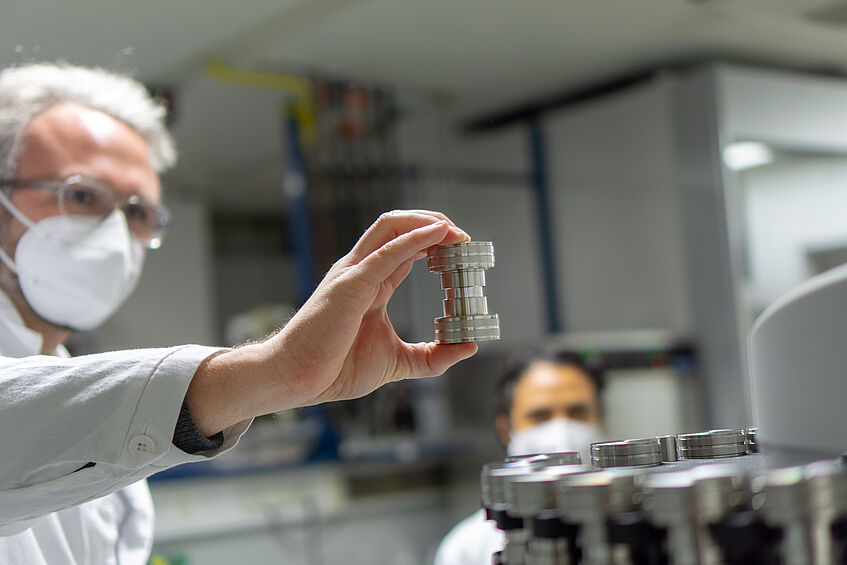Environmental Mass Spectrometry (EMS)

© Gabriel Sigmund

© Gabriel Sigmund
The Environmental Mass Spectrometry Facility (EMS) provides state-of-the-art mass spectrometers for studying environmental processes at the nanometre and molecular scale. Since 2005, our facility has been pioneering novel methods in environmental analytical chemistry uniquely tailored to addressing relevant questions in terrestrial and aquatic systems.
Our research focuses on natural and anthropogenic contaminants, which represent an extremely wide group of organic and inorganic substances, including unknown structures, substances of emerging concern, and transformation products. At the EMS, we not only detect substances down to ultra-trace levels, but we also investigate stable isotope fractionations and conduct non-target analytics. Our studies include source tracing, as well as identification of processes controlling the biogeochemical cycling of metals.
Recent advances in mass spectrometry (MS) have led to an increasingly sophisticated arsenal of instruments designed to analyse complex environmental samples. The great benefit of high-resolution MS is its ability to identify and quantify numerous analytes in complex mixtures in a single run. Our facility focuses on high-resolution MS and tandem MS to achieve faster high-throughput analyses with minimum sample preparation, as well as multi-collector inductively coupled plasma (ICP) MS for stable isotope ratio measurements.
Our suite of analytical capabilities includes ICP time-of-flight MS (ICP-TOF-MS) for recording elemental mass spectra down to attogram levels in single nanoparticles. We use liquid chromatography coupled to tandem MS (triple quadrupole and Orbitrap) for increased selectivity and non-target analytics, as well as gas chromatography coupled to tandem MS (GC-MS/MS). We also use triple quadrupole ICP-MS coupled to size exclusion chromatography or field flow fractionation, which offers flexibility in method development and provides unrivalled control of interferences, delivering greater accuracy and more consistent results. Isotope analyses are performed on a multicollector ICP-MS with sixteen Faraday cups for simultaneous detection of multiple isotope ratios. A clean room and workspaces with controlled atmospheres are available for sample preparation. Our facility conducts research in cooperation with researchers not only from our Centre, but also from the Faculties of Chemistry, Earth Sciences and Life Sciences, as well as other national and international partners.
